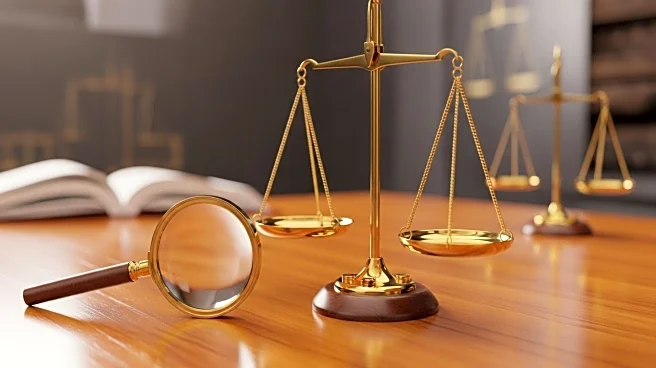What's Happening?
The U.S. Supreme Court is reconsidering aspects of the Voting Rights Act, particularly Section 2, which prohibits voting practices that result in racial discrimination. The case in question involves Louisiana's redistricting plan, which has been challenged for potentially diluting the voting power of Black residents. The Trump administration supports Louisiana's position, arguing that current voting conditions do not justify excessive consideration of race. The court's decision could affect the ability of states to create majority-minority districts, which have historically been used to ensure minority representation in Congress.
Why It's Important?
The outcome of this Supreme Court case could have significant implications for the political landscape in the United States. If the court decides to weaken Section 2 of the Voting Rights Act, it may become easier for states to redraw district maps in ways that could reduce minority representation. This could lead to more partisan gerrymandering, particularly in Republican-dominated southern states, potentially shifting the balance of power in Congress. The decision could also set a precedent for future cases involving race-based remedies in voting and redistricting, impacting how minority communities are represented in government.
What's Next?
The Supreme Court's decision in this case will likely influence the redistricting battles for the 2026 midterm elections and beyond. If Section 2 is weakened, states may feel emboldened to redraw district maps without considering racial impacts, potentially leading to legal challenges and further scrutiny of voting laws. Civil rights groups and minority communities are expected to closely monitor the outcome, as it could affect their ability to elect representatives of their choice. The case also highlights ongoing debates about the role of race in electoral processes and the balance between equal protection and race-conscious remedies.
Beyond the Headlines
The case raises broader questions about the role of race in American democracy and the extent to which historical discrimination should influence current electoral practices. It also touches on ethical considerations regarding the fairness of districting processes and the potential for disenfranchisement of minority voters. The decision could signal a shift in how the judiciary interprets civil rights laws, potentially affecting other areas such as affirmative action and public school integration.











